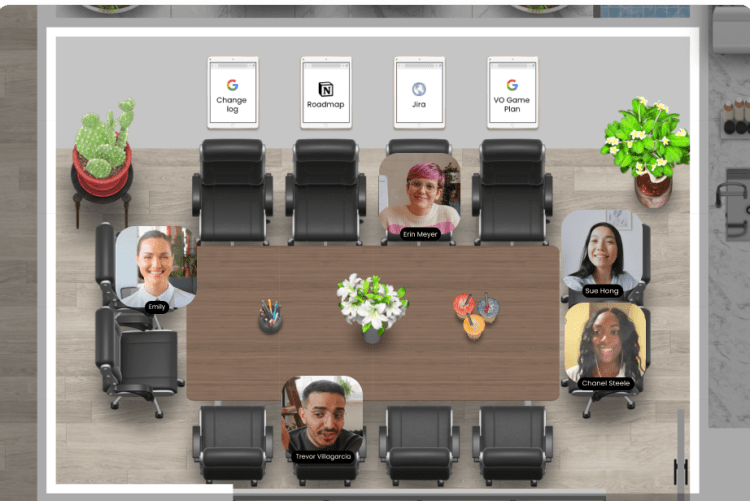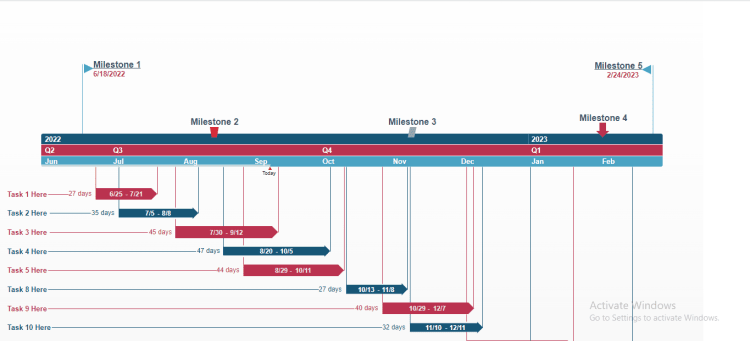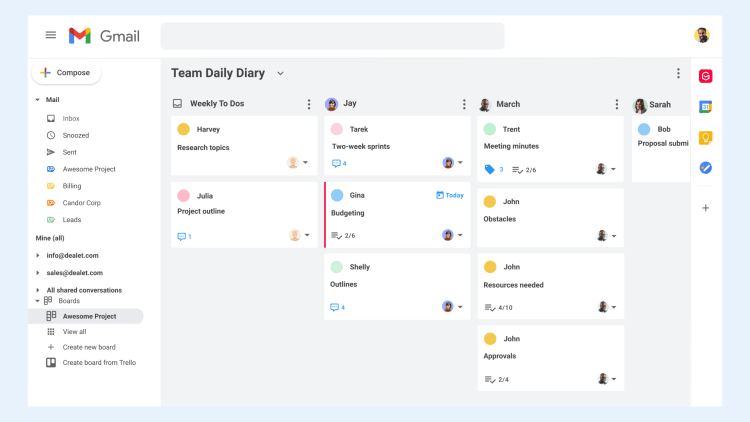Project management is a key skill set that can propel your career and ensure project success. Mastering both hard and soft skills is essential for effective project management. In this blog post, you will discover the top project management skills, strategies for developing them, and the tools and techniques that can help you achieve success in your projects. So, let’s dive in and explore how you can become the ultimate project manager!
Key takeaways
- Project management skills are essential for successful project delivery and career growth.
- Project managers must possess hard skills such as knowledge of methodologies, software proficiency, budgeting and cost control to effectively manage stakeholders’ expectations.
- They need soft skills like effective communication, strong leadership abilities and the ability to adapt in order to be successful in their roles.
The importance of project management skills

In today’s fast-paced and dynamic business environment, project management skills have become increasingly important. A well-rounded project manager should possess a combination of hard and soft skills to successfully manage projects and lead teams. These skills not only ensure project success but also contribute to career growth in the field.
Effective project management necessitates the mastery of hard skills such as methodologies, software proficiency, and budgeting and cost control. Conversely, effective project team management requires soft skills like communication, leadership, and adaptability. Cultivating these key project management skills can enhance your capacity to meet responsibilities and thrive in your role.
Top 15 essential hard skills for project managers

As a project manager, you must master essential hard skills to excel. Knowledge of methodologies, software proficiency, and budgeting and cost control are among the most critical hard skills required for the best project managers. These skills allow project managers to effectively manage stakeholders’ expectations and requirements, ensuring projects are completed on time and within budget.
Project managers must also possess planning and forecasting skills, which are essential for successful project execution. They are responsible for:
- Scheduling tasks
- Collaborating with stakeholders to determine resource requirements
- Predicting project costs and timelines using various project management tools
Let’s explore these essential technical skills and hard skills in more detail.
Methodologies mastery

Understanding and applying various project management methodologies, including the right project management methodology for a specific project, is crucial for success and adaptability. Each methodology offers unique advantages, and the ability to choose the right one for a particular project can significantly impact its outcome.
Some popular methodologies include Agile management, which emphasizes continuous improvement and incremental evolution, and change management, which focuses on introducing organizational change over a set period of time to facilitate adaptation.
Mastering a variety of methodologies allows project managers to adapt their approach effectively to each project’s specific needs and constraints, ensuring success in a continuously evolving business environment.
Software proficiency
In the digital age, the ability to proficiently use project management software is key to efficient planning, tracking, and collaboration. Familiarity with popular project management platforms like Jira, Asana, and Wrike can significantly streamline project management processes and enhance team productivity.
Additionally, project managers need to skillfully onboard team members to project management software and set up suitable workflows. Task management tools, such as those offered by ProjectManager, can further improve team productivity by providing a comprehensive overview of all tasks associated with a given project, allowing users to track progress and ensure timely completion.
Budgeting and cost control
Maintaining projects on track and within financial constraints necessitates effective budgeting and cost control. Project budgeting entails:
- Creating and managing a budget for a project
- Establishing a budget
- Tracking expenditures
- Assessing progress against the budget
To excel in budgeting and cost control, project managers must be able to accurately forecast resource requirements, identify potential risks, and implement appropriate mitigation strategies. This requires a keen understanding of both tangible and subjective elements, as well as the ability to prioritize tasks and allocate resources effectively.
Top 10 essential soft skills for project managers

Besides hard skills, a range of essential project management skills is also necessary for project managers to succeed in their roles. Effective communication, strong leadership, and the ability to adapt to changing circumstances are all crucial soft skills for successful project management. These skills not only contribute to the smooth execution of projects but also foster a positive working environment and strong relationships with team members, clients, and stakeholders.
Communication, leadership, adaptability, interpersonal skills, negotiation, organization, personality traits, and understanding the components, impact, and importance of effective communication are among the most vital soft skills for project managers. Let’s delve deeper into these critical soft skills and explore their significance in project management.
Communication skills
Effective communication is crucial for project managers to establish and maintain relationships with team members, clients, and stakeholders. Recognizing the correct communication method and timing can ensure that messages are conveyed accurately and minimize the possibility of miscommunication. Project managers must possess essential communication skills such as:
- Listening
- Written communication
- Verbal communication
- Nonverbal communication
- Public speaking
- Empathy
- Clarity
Mastering these key communication skills allows project managers to:
- Communicate project goals effectively
- Manage expectations
- Resolve conflicts
- Navigate complex stakeholder dynamics
This, in turn, contributes to the overall success of the project and the satisfaction of project stakeholders, fostering a supportive, collaborative working environment.
Leadership abilities
Strong leadership skills are necessary for project managers to guide, motivate, and manage their teams. A successful project manager should possess the ability to:
- Empathize with others
- Comprehend disparate requirements
- Develop applicable strategies
- Be attentive and perceptive to the sentiments and motivations that are driving others’ requests.
The ultimate accountability of a project manager is the success or failure of the project, which is essentially the core of a project manager’s job. Project managers can inspire their teams, create a positive work environment, and steer projects towards successful completion by demonstrating strong leadership skills.
Adaptability and flexibility
Project managers must be adaptable and flexible to handle changes and challenges in the project environment. This requires the ability to:
- Embrace change
- Communicate effectively
- Manage risks
- Adopt an agile mindset
- Foster collaboration and teamwork
Adaptable and flexible project managers can effectively respond to changing project requirements, unexpected challenges, and evolving priorities, thereby ensuring project success.
In a constantly changing business landscape, the ability to adapt and remain flexible is a valuable asset for project managers. This skill not only contributes to successful project management but also enhances the project manager’s ability to navigate complex situations and drive continuous improvement.
Strategies for developing project management skills

Pursuing continuous learning, gaining hands-on experience, and networking with other professionals are recommended strategies to develop project management skills. This multifaceted approach can help project managers stay updated with industry trends, hone their management skills, and gain valuable insights from experienced professionals.
Consulting project management resources can assist with improving project management skills. Some examples of these resources include:
- Articles
- Guides
- Industry reports
- Webinars
- Conference papers
- Case studies
- Research papers
Let’s explore these strategies in more detail.
Continuous learning and training
Project managers can benefit from pursuing ongoing education and training opportunities to stay informed of industry trends and best practices. This includes:
- Participating in project management courses or workshops
- Utilizing project planning tools
- Establishing clear expectations for stakeholders
- Consulting project management guides and resources
Commitment to continuous learning and training allows project managers to not only refine their existing skills but also acquire new knowledge and techniques that boost their efficiency in managing projects and leading teams.
Hands-on experience
Acquiring hands-on experience in project management is paramount for refining one’s project management abilities. Practical experience allows project managers to apply theoretical knowledge to real-world scenarios, further enhancing their understanding of project management principles and practices.
The most crucial hands-on experience techniques for project managers encompass:
- Collaboration
- Critical thinking
- Communication
- Planning/coordinating
- Problem-solving
- Leadership
- Operations
- Customer service
Active engagement in these activities allows project managers to gain invaluable insights, build confidence in their abilities, and enhance their effectiveness in their roles.
Networking and mentorship
Establishing connections with other project management professionals and seeking mentorship can offer invaluable perspectives and counsel, including access to sector knowledge, advice on career progression, and aid in exploring the project management environment. Networking provides project managers with the opportunity to establish new connections and locate mentors who can offer guidance.
Events organized by the Project Management Institute (PMI) provide networking and educational opportunities. Additionally, establishing a mentoring program within the organization can facilitate project managers in:
- Forming robust professional connections
- Obtaining invaluable knowledge from experienced mentors
- Augmenting their overall proficiency in managing projects.
Boosting project management skills with Kumospace

Kumospace stands out as a pivotal tool for enhancing skills within project management. Its immersive virtual environment, mirroring a physical office, provides an ideal platform for project managers and teams to refine key skills such as communication, collaboration, and time management. The ability to navigate a virtual space and engage in realistic, spatial audio conversations encourages more natural and effective communication, an essential skill in project management. This setup is particularly beneficial for role-playing scenarios, where team members can practice negotiation, conflict resolution, and leadership skills in a controlled, yet realistic setting.
Additionally, the platform's ability to integrate with various project management tools allows for seamless organization and tracking of tasks, fostering improved time management and prioritization skills. Kumospace's interactive features, including screen sharing and real-time collaboration, further hone team coordination and problem-solving abilities, key competencies in managing complex projects. By providing a unique, interactive virtual space, Kumospace not only enhances the efficiency of project management but also significantly contributes to the skill development of the individuals involved.
Tools and techniques for effective project management

The effectiveness of project management can be enhanced using various tools and techniques like Gantt charts, Kanban boards, and risk assessment. These tools not only streamline the project management process but also help project managers make informed decisions, track progress, and ensure project success.
Let’s explore these tools and techniques in more detail, highlighting their benefits and applications in project management.
Gantt charts and timelines

Visual tools like Gantt charts and timelines help project managers plan, schedule, and track project progress. Gantt charts are horizontal bar charts that represent a project’s timeline, with each bar symbolizing a task and its length reflecting the duration of that task. Timelines, similar to Gantt charts, assist in understanding how all the elements of the project fit together.
The use of Gantt charts and timelines enables project managers to prevent costly delays, identify crucial tasks, and monitor progress in real-time. These visual tools provide a comprehensive overview of the project timeline, enabling project managers to make informed decisions and ensure project success.
Kanban boards and task management

Kanban boards are a visual project management tool that allows users to track progress by dividing work into stages, each represented by a column, and individual tasks, represented by cards. Lean project management teams commonly utilize Kanban boards to streamline task organization, progress tracking, and team collaboration.
The use of Kanban boards for task management helps project managers ensure team members work with consistent information, and tasks are completed efficiently. This, in turn, contributes to the overall success of the project and the creation of a supportive, collaborative working environment.
Risk assessment and mitigation

Successful project management and avoidance of potential issues require the identification, assessment, and mitigation of risks. The procedure for risk assessment and mitigation entails identifying possible risks, evaluating their probability and impact, and then taking measures to mitigate or eliminate them.
Conducting risk assessment and mitigation can decrease the probability of unexpected issues arising and the effect of those that do occur. This can aid in ensuring projects are finished on time and within budget. By proactively implementing risk management strategies, project managers can better prepare for potential challenges and ensure project success.
Summary
In conclusion, mastering a combination of hard and soft skills is essential for successful project management. By developing these skills, project managers can ensure project success, enhance their career growth, and navigate the ever-evolving business landscape. With continuous learning, hands-on experience, networking, and the right tools and techniques, project managers can become the ultimate catalyst for project success and growth.
Frequently asked questions
Project management skills are essential to successfully plan, organize, and bring a project from start to finish. They include technical and hard skills such as portfolio management and project scoping, soft skills like adaptability, and traits such as planning, assessing risks and opportunities, creating budgets, communicating with stakeholders, and troubleshooting problems.
Project Managers need excellent leadership, communication, delegation, motivation and goal-setting skills, as well as critical thinking, problem solving, risk management and organisational abilities, and patience.
Project management skills are applicable to all as everyone is likely to encounter a situation in which they need to organize and lead a project.
Project management skills are vital for successful project planning, including assessing risks and opportunities, creating budgets, communicating with stakeholders, and troubleshooting problems. These abilities enable projects to be completed efficiently and effectively.
The top 3 characteristics of a project manager are excellent communication, leadership, and problem-solving skills. These abilities are essential for a successful project manager, as they enable them to make sound decisions, inspire team members, and foster collaboration among all stakeholders.
Gantt charts and timelines provide valuable visual aids that allow project managers to effectively plan, schedule and track the progress of their projects, ensuring successful completion within budget and time constraints.





